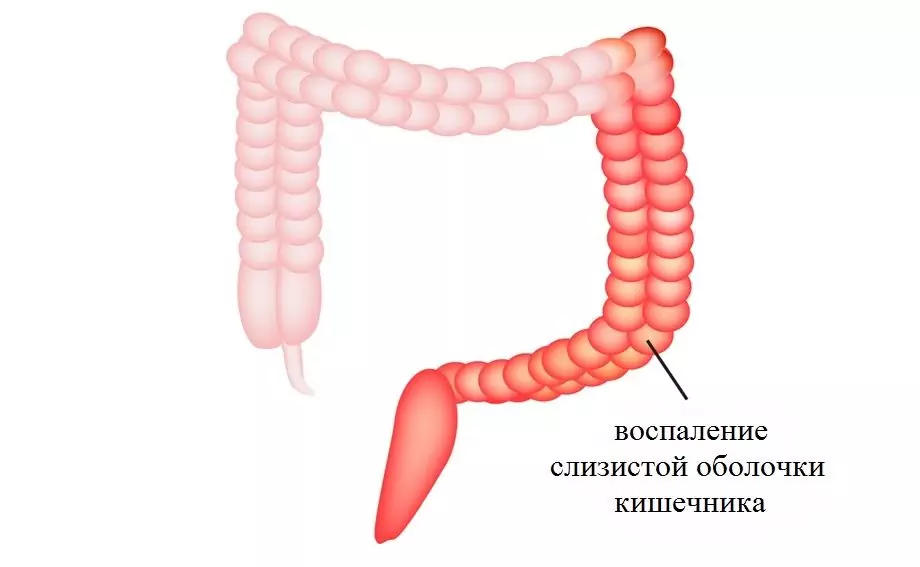- Author Rachel Wainwright wainwright@abchealthonline.com.
- Public 2023-12-15 07:39.
- Last modified 2025-11-02 20:14.
Heartburn during pregnancy: causes, safe remedies
The content of the article:
-
Heartburn in pregnant women: causes
- Physiological causes
- Improper nutrition
- Diseases of the digestive tract
- Heartburn during pregnancy: symptoms
-
Heartburn During Pregnancy: How To Treat
- General recommendations
- Nutrition correction
- Drug treatment
- Folk remedies
- Video
Every second woman suffers from heartburn during pregnancy. The onset of a symptom is associated with physiological changes in the body - at an early stage of pregnancy, the hormonal background changes, in the second and third trimester, the enlarged uterus affects the location of the stomach. Proper nutrition, folk remedies and safe medicines will help get rid of the unpleasant sensation.

Due to physiological reasons, heartburn is very common during pregnancy.
Heartburn in pregnant women: causes
Heartburn is a burning sensation in the chest area. The symptom appears when gastric juice enters the esophageal mucosa. The presence of heartburn does not directly affect the life and health of the expectant mother, but it brings a lot of unpleasant sensations. Burning sensation can occur for physiological reasons, due to inaccuracies in nutrition, as a symptom of diseases of the digestive tract.
Physiological causes
Most often, a burning sensation in the esophagus appears due to physiological changes in the body of a pregnant woman. There are two main reasons why heartburn occurs in late pregnancy:
| Cause | Explanation |
| Relaxation of the lower esophageal sphincter |
The lower esophageal sphincter is located between the esophagus and stomach, separating the organs from each other. The normal functioning of the sphincter ensures that food gets from the esophagus into the stomach, but not back. Under the influence of progesterone (the main hormone of pregnancy), the muscle sphincter relaxes, and hydrochloric acid can go back from the stomach into the esophagus. |
| Increase in the size of the uterus (increased intra-abdominal pressure) | The uterus in the 2nd and 3rd trimester of pregnancy presses on adjacent organs. As a result, the stomach is located in the abdominal cavity more horizontally, and its volume decreases. |
Less commonly, the cause of heartburn in early pregnancy is toxicosis with frequent vomiting and irritation of the esophageal mucosa with vomit.
Improper nutrition
Often, poor nutrition leads to the development of heartburn. The provoking factors include overeating, eating before bedtime. Overweight increases the likelihood of heartburn.
Foods that cause heartburn include:
- citrus;
- chocolate;
- mint;
- strong tea;
- coffee;
- fatty food;
- hot dishes.
Eating mint, chocolate and fatty foods leads to relaxation of the muscle sphincter and the return of gastric contents into the esophagus. Citrus fruits, coffee, strong tea and hot spices increase the acidity of the stomach.
Diseases of the digestive tract
In most cases, persistent heartburn is a symptom of gastroesophageal reflux disease (GERD). The disease is characterized by damage to the esophagus as a result of repeated reflux of gastric contents.
Less commonly, heartburn is a symptom of esophagitis, an inflammation of the esophagus. For esophagitis, characteristic and other signs:
- swallowing disorder;
- chest pain;
- the appearance of a symptom while eating.
Another disease that can manifest as heartburn is gastritis. The cause of gastritis can be the bacterium Helicobacter pylori, medication, and reflux of bile from the intestine. Additional symptoms of gastritis include abdominal pain, nausea, vomiting, and loss of appetite.
Heartburn during pregnancy: symptoms
Heartburn, or a burning sensation in the esophagus, has the following characteristics:
- localized behind the sternum;
- often occurs after eating;
- increases in a horizontal position, when the body bends;
- worse after coffee, strong tea, fatty foods;
- passes after antacids.
A burning attack can last from a few minutes to an hour. The attacks are often repeated 3-5 times per day.
Since the burning sensation is localized in the retrosternal region, sometimes angina pectoris can be taken for heartburn. Shortness of breath, pallor of the skin, chest pain indicate heart damage.
Heartburn can be accompanied by other symptoms that arise due to the reflux of gastric juice into the esophagus:
- sour belching;
- chest pain (with esophagitis).
These symptoms also occur after eating, on bending the torso, or at night.
Heartburn During Pregnancy: How To Treat
In most cases, heartburn is a temporary symptom that goes away after the baby is born. To alleviate the condition, you can use folk remedies, some medicines, follow a diet. The complexity of the selection of drug therapy lies in the fact that the prescribed drugs should not affect the fetus.
General recommendations
You can get rid of an unpleasant symptom without medication. Simple recommendations will help reduce the burning sensation:
- Do not lie down or bend over immediately after eating, as this facilitates the reflux of hydrochloric acid into the esophagus.
- Sleeping on a bed with the head end raised will reduce the burning sensation at night.
- Wear loose clothing that does not constrict the stomach.
- Do not overeat - it is better to eat more often, but in smaller portions.
- Eat slowly, chewing food thoroughly.
- Have dinner 3 hours before bedtime.
- Drink water throughout the day. Water helps to neutralize the hydrochloric acid in the stomach. It is recommended to drink 100-200 ml of water every 1-2 hours.
In most cases, following these recommendations is sufficient to eliminate the symptom.
Nutrition correction
The diet consists of avoiding the use of those foods that increase acidity or cause relaxation of the esophageal sphincter. It is recommended to exclude the following foods from the diet:
- drinks - coffee, strong tea, mint tea, orange juice;
- citrus;
- tomatoes;
- chocolate;
- fatty, fried and spicy foods;
- seasonings.
Foods that reduce acidity (natural antacids) should be added to the diet - low-fat milk, nuts, green vegetables, fruits, whole grains, poultry, fish.
Drug treatment
The goal of drug therapy is to weaken the effect of an aggressive factor (mainly hydrochloric acid) on the esophageal mucosa. In pregnant women, antacids are used for this.
Antacids are a group of drugs that neutralize hydrochloric acid. They do not affect its production, but affect the acid already present in the stomach and esophagus. In addition, antacids increase the production of protective mucus and have an enveloping effect.
Constipation is a side effect of some antacids. Therefore, it is not recommended to use drugs that contain only calcium or aluminum salts.
The following antacids are allowed during pregnancy:
- Rennie;
- Maalox;
- Almagel;
- Gaviscon.

Not all medications can be used during pregnancy, it is better to prefer safe remedies for heartburn, such as warm milk
Folk remedies
Folk remedies will help to reduce the harmful effects of hydrochloric acid on the wall of the esophagus. Their advantage is affordability and gentle action.
What folk remedies are safe to use during pregnancy:
| Name of funds | Description and preparation method | How to use |
| Flax seeds |
Flax seeds are enveloping agents, they protect the mucous membrane of the esophagus. You can make an infusion from flax seeds, for this you will need: 2 tablespoons of seeds; 100 ml of water. Pour boiling water over the seeds and leave for several hours. |
You need to take the infusion when a burning sensation appears or before bedtime. It is recommended to drink 3 tablespoons of the infusion at a time. |
| pharmaceutical camomile |
Chamomile has a beneficial effect on the mucous membrane of the esophagus, reduces inflammation. You can make tea from chamomile flowers. For this you will need: 1 tablespoon of flowers; 200 ml of boiling water. Pour dry flowers with hot water and leave for 20 minutes. |
Chamomile tea can be drunk 1 glass one hour before meals. |
| Vegetable oil |
To reduce the symptoms of acid reflux, vegetable oils can be used: · Olive; · Rapeseed; · Linseed. They reduce the acidity of the stomach by eliminating the burning sensation in the esophagus. |
If a burning sensation occurs, you need to drink 1 tablespoon of oil. |
| Milk | Milk is a natural antacid. It neutralizes hydrochloric acid, relieving the burning sensation in the esophagus. | It is better to drink milk warm, you can add honey. It is recommended to drink it 1 hour before or after meals. |
Not all folk remedies are equally safe while carrying a child.
Video
We offer for viewing a video on the topic of the article.

Anna Kozlova Medical journalist About the author
Education: Rostov State Medical University, specialty "General Medicine".
Found a mistake in the text? Select it and press Ctrl + Enter.






